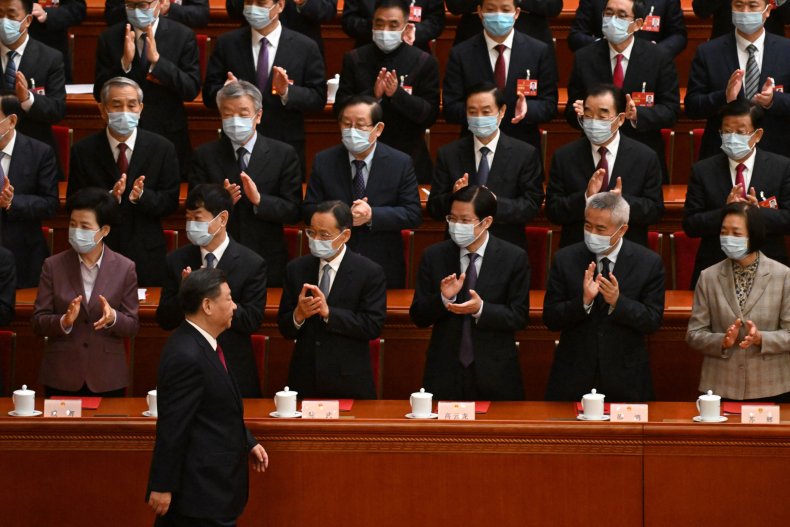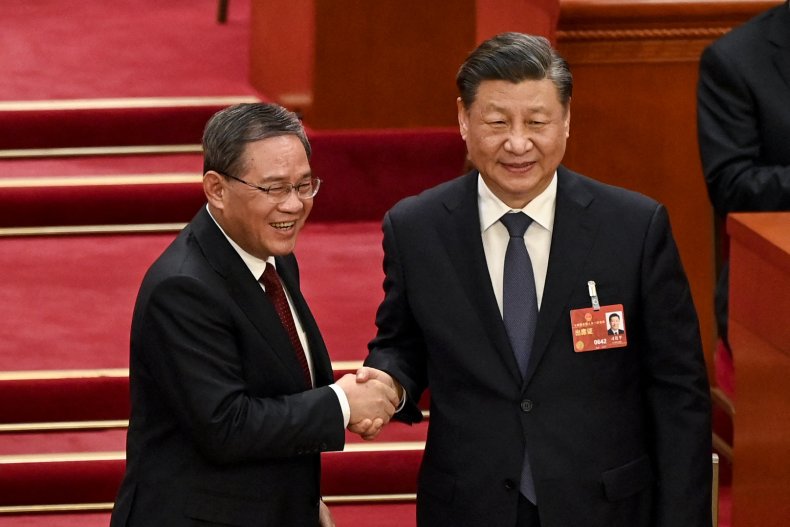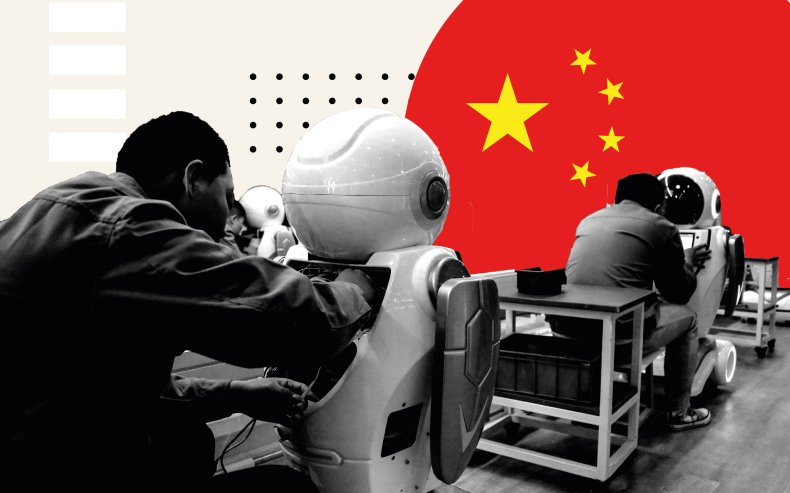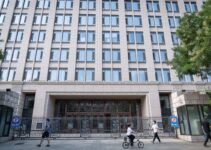President Xi Jinping of China has embarked on a third term in office by ordering bureaucratic reforms with an eye on financial stability and economic resilience in the face of internal and external pressures.
A dozen central government institutions were affected by the extensive reorganization announced at this month’s annual legislative gathering known as the “two sessions.” China’s Communist Party also is in the process of standing up new commissions to exert tighter control from Beijing in a move that will further shrink the role of the State Council, China’s cabinet.
State reforms approved by the Chinese parliament included the creation of a national data bureau to manage national security risks associated with private sector data collection. Also among the eye-catching announcements was a new financial watchdog to oversee China’s $60 trillion financial sector.
The National Financial Regulatory Administration will soon replace the current banking and insurance commission. The State Council, under the leadership of China’s new premier, Li Qiang, will have authority over the regulator, whose responsibilities exclude monetary policy and the stock exchange.
“The new super-regulator consolidates most of the regulatory activities into one agency. Except for the central bank and the securities regulator, all others are under one roof now,” said Guonan Ma, a senior fellow at the Asia Society Policy Institute’s Center for China Analysis. “All these are state-coordinated anyway. The question is whether you want a more fragmented, specialized framework or a lumped-into-one-house approach.”
“It’s a very ambitious move to have better coordination in anticipation of rising financial risk in the years ahead,” Ma told Newsweek. “As the Chinese economy transforms, we will see a broadening of the possible financial risks across the economy—that’s inevitable. And a more consumer-driven economy probably will mean some risks in that area as well compared to a few years ago, for example in consumer credit.”

NOEL CELIS/POOL/AFP via Getty Images
China’s financial system, although nominally underwritten by the one-party state, nonetheless poses structural challenges to policymakers in Beijing. These include a crisis-hit housing sector as well as considerable fiscal burdens linked to astronomical public health expenditure at local government level throughout the pandemic.
The Chinese government will relieve some of this budgetary pressure by slashing the civil service by 5 percent, according to the cabinet’s plan, which also will divert excess personnel to other areas.
“The government may want to use this cut to contain the bureaucracy and reallocate resources to hire civil servants with new skills and for new tasks,” said Ma, who cited China’s new data bureau as a possible area.
STEM on Xi’s Mind
Xi hasn’t been shy about his desire to see China become a leading player in the world’s science and technology arena. Last October, when he extended his rule over the Communist Party for a norm-breaking third term, he assembled a team of loyal technocrats who many believed would bring him closer to his goal.
Throughout his decade in power, the Chinese leader has favored a statist approach to governance, one in which the party ultimately has the final say over the government’s functions and affairs. This was evident this month in the party institution reform that followed closely behind the bureaucratic shake-up.
China’s new financial watchdog, for instance, will be overseen by the Central Financial Commission, which answers to the Communist Party’s Central Committee. Xi also has revived the Central Financial Work Commission after two decades in order to supervise the Chinese financial sector’s ideological and political alignment with the country’s long-ruling party.
In addition, a revamped science and technology ministry—geared toward achieving breakthroughs and self-reliance—will operate under the auspices of a newly established Central Science and Technology Commission. The organization was a response to “severe international competition…and external containment and suppression,” said the cabinet.
China‘s leaders in recent months have depicted an increasingly turbulent international environment, in which its chief rival, the United States, is threatening to hobble Chinese innovation and by extension the country’s long-term economic security.
“Western countries led by the United States have implemented all-round containment, encirclement and suppression of China, bringing unprecedented, severe challenges to our country’s development,” Xi told members of China’s top political advisory body in early March, in a rare direct reference to Washington.
On October 7 last year, the U.S. government imposed sweeping restrictions on the export of high-end semiconductors, chip-making equipment and expertise to China in a risky unilateral move that has since been backed by key allies in the supply chain. The intervention was motivated by Beijing’s use of advanced components for military modernization, according to senior Biden administration officials.

GREG BAKER/POOL/AFP via Getty Images
China’s recently announced reforms may offer internal solutions to the U.S. industrial policy aimed at retaining Western primacy in emerging technologies, but a successful workaround is far from guaranteed, especially in the near term.
“It’s hard not to see this as partially a response to the Biden administration’s moves to push back on China in terms of technology, especially with the semiconductor export controls. But I also see it as part of a more long-term trend. Xi Jinping has long made science and technology a very high priority,” said Brian Hart, a fellow with the China Power Project at the Center for Strategic and International Studies.
The reforms follow a broad pattern of state and party restructuring overseen by Xi, who in recent years has consolidated control of the country’s military under the party’s central leadership, Hart told Newsweek. It speaks to a conviction in the party’s statistic approach to governance.
“They see value in letting there be some market-driven and -oriented work, but they see their goals not being met entirely, and they think the way to fix that is through putting much stronger high-level party support behind this. But whether China has achieved science and technology goals really depends on what you look at,” he said.
“China has poured billions and billions of dollars into semiconductors over the past couple of years, but still remains well behind where they’d like to be and behind some of the global leaders in that field. You can pump a lot of money into that and build that up, but whether those actually work commercially is the key question, and that’s where the statist approach really falls short sometimes,” said Hart.
Washington may be hard-pressed to convince Beijing of its rationale for targeted decoupling, he said. “If you’re thinking about economic competitiveness, China wants to be on the leading edge of the most important areas. Semiconductors are certainly one of those areas. From that perspective, any move to set China back is going to be seen by them as a major economic threat—even if those actions are taken on national security grounds.”
(De)couple
Li, the new Chinese premier, told a press conference last week that China and the U.S. were too economically intertwined for decoupling not to hurt American business, too. “Encirclement and suppression is in no one’s interest,” he said.
China’s pursuit of self-sufficiency—for economic stability and to avoid chokepoints in critical supply chains—also has an air of decoupling, even if it doesn’t use the phrase. The question of who decoupled first may soon become a moot point, although Beijing continues to accuse Washington of abusing the scope of what constitutes national security.

Newsweek; Source photo by STR/AFP via Getty Images
“U.S. export controls were always deployed in cases where the national security implications were so urgent and severe that the economic implications almost didn’t matter,” said Emily Weinstein, a research fellow with Georgetown University’s Center for Security and Emerging Technology. “It wasn’t until the Huawei discussions during the Trump administration that we even started thinking about some of the economic considerations of export controls.”
The U.S. may have been one of the driving pieces behind the Chinese state reforms, Weinstein told Newsweek. “But we would’ve seen more emphasis on technological self-reliance regardless of the October 7 rules, which I think have forced China to hone some of the self-reliance and self-sufficiency efforts that they were already doing.”
While it’s still too early to say whether the plans to boost China’s technological prowess will work, officials in Beijing likely already recognize existing challenges, according to Weinstein.
“China has been pretty honest about the fact that basic research as a whole is something they really struggle in—understanding the underlying technology or science behind some of the technologies they acquire at the completed stage,” she said. “A part of these new reforms may be to really focus on improving the capacity at the early stage of research.”
“There’s an understanding from very prominent people in the Chinese political system that the blunt force way of innovation does not work. You can’t use state-owned enterprises as your means to innovate because big bureaucracies are not built for that type of experimentation,” said Weinstein. “China is going to have to continue to work on this balance.”
Do you have a tip on a world news story that Newsweek should be covering? Do you have a question about China? Let us know via [email protected].


